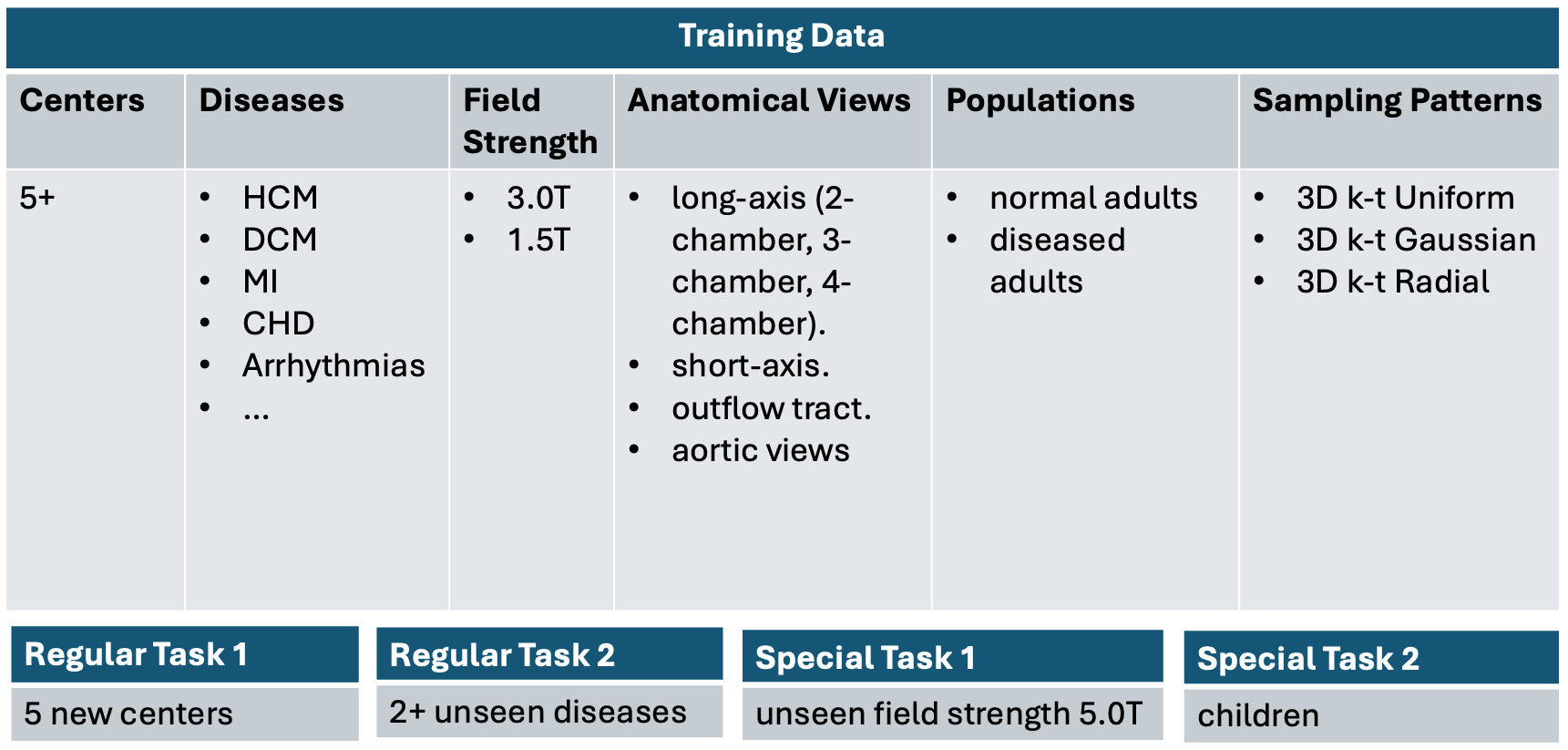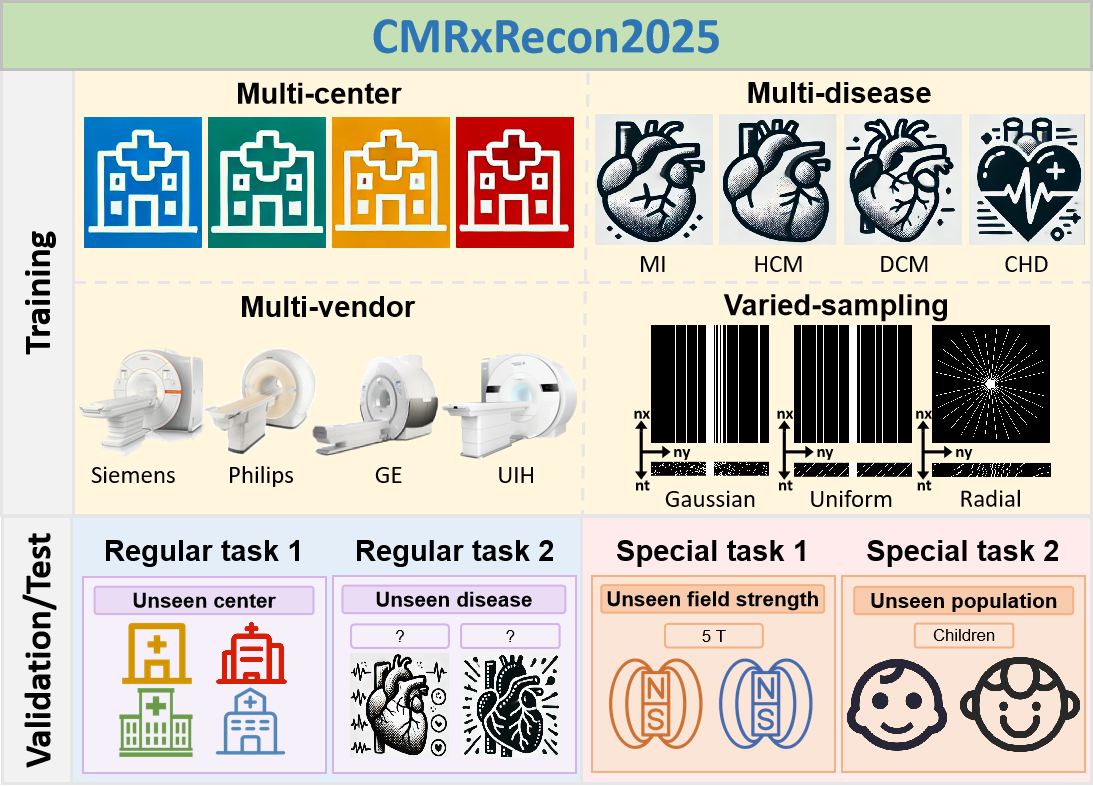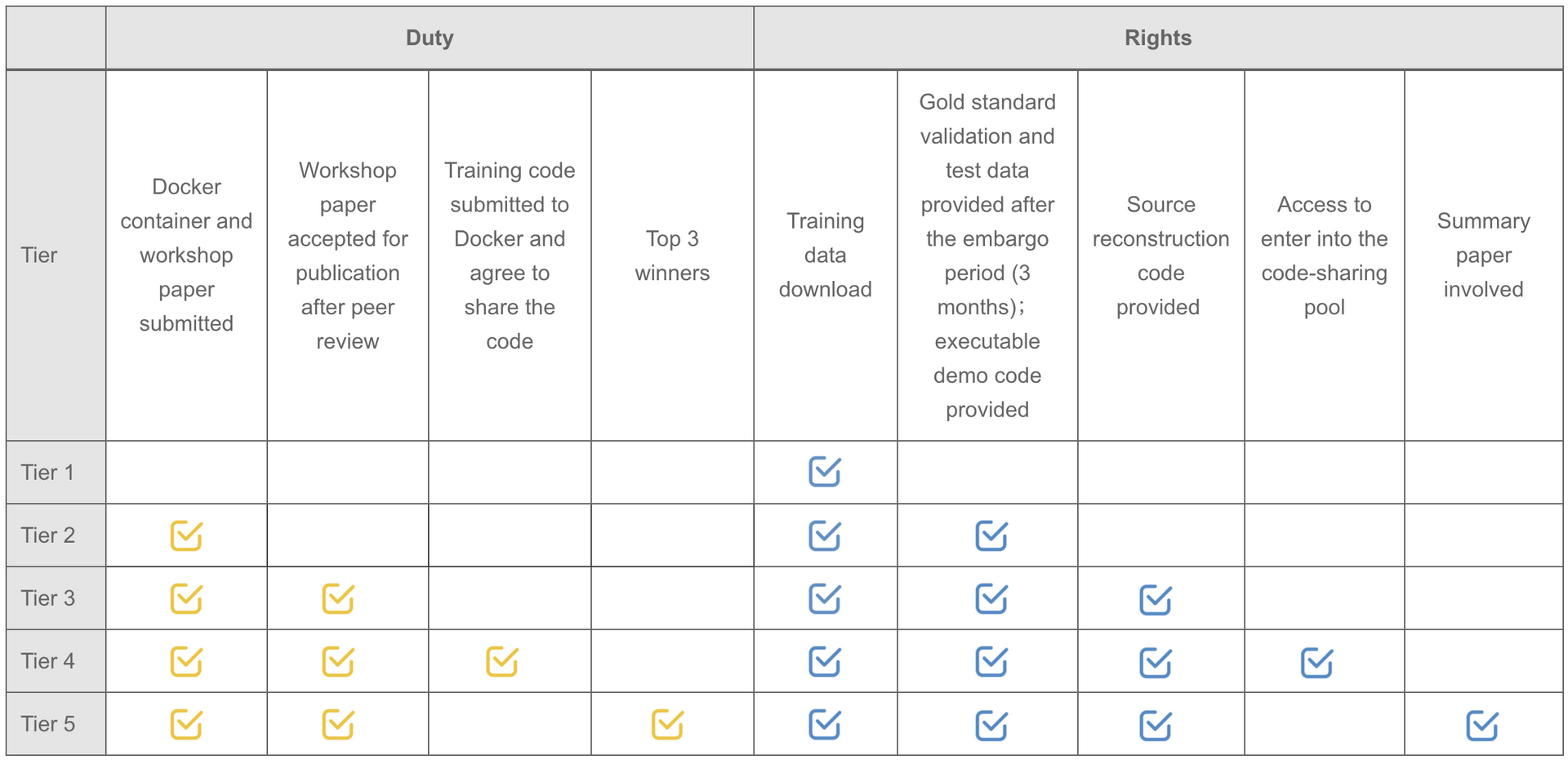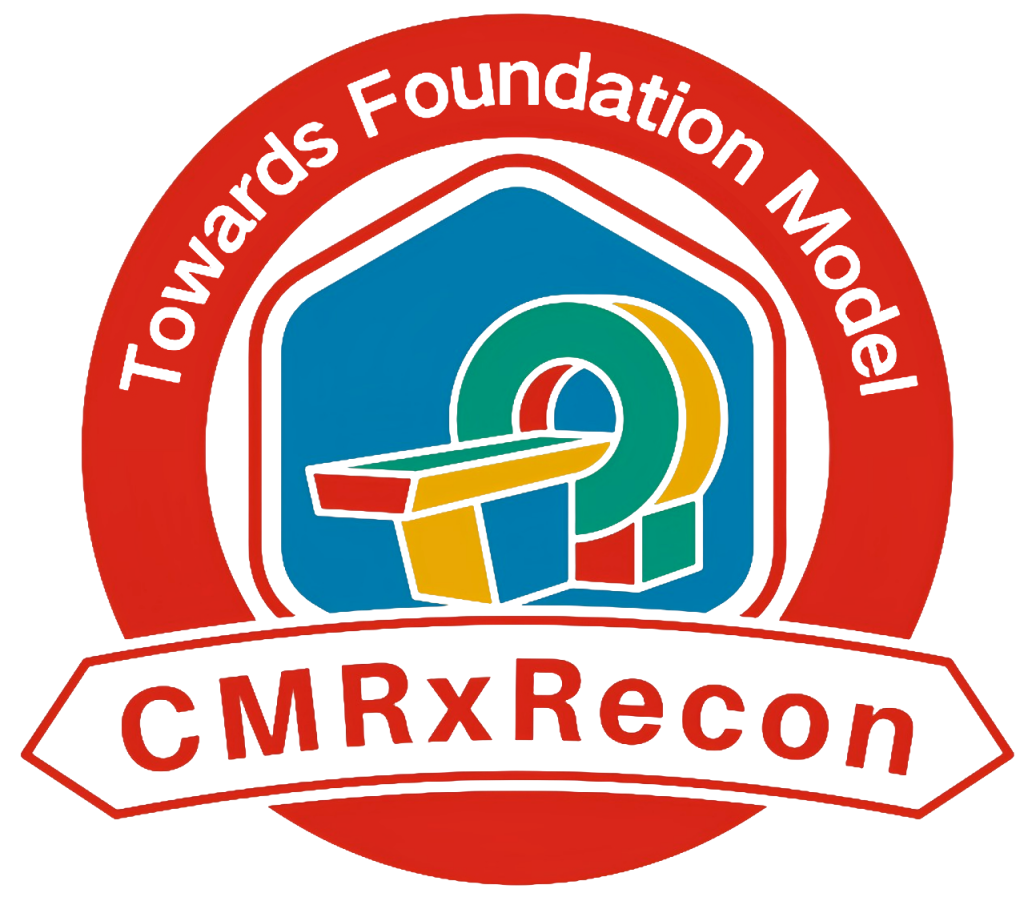The CMRxRecon2025 challenge includes two regular tasks (announced during MICCAI anual meeting) and two special tasks (announced during SCMR anual meeting) . The tasks are awarded independently, so each team can choose to participate any one of them. For each task, participants can submit one model each (which can be four different models, or they can submit just one model, but they must submit it separately for each task). Please note that for the four tasks, the training dataset we provide is the same; however, the validation and test datasets are different for each of the four tasks.
To evaluate the model's generalization performance
across diverse centers and scanners (regular task 1),
diseases (regular task 2), magnetic fields (special task 1), and populations (special task 2).


This task primarily focuses on addressing the issue of declining generalization performance between multiple
centers. Participants are required to train the reconstruction model on the training dataset and achieve
good multi-contrast cardiac image reconstruction results on the validation and test datasets. It is
important to note that for this task, we will include data from two entirely new centers in the validation
set (not present in the training set), and the test set will contain data from five entirely new centers
(not present in the training set, including the two centers that appeared in the validation set).
This task primarily focuses on evaluating the reliability of the model in applications involving different
cardiovascular diseases. Participants are required to train the reconstruction model on the training dataset
and achieve good performance in disease applications on the validation and test datasets. It is important to
note that for this task, we will include data for two diseases that have not appeared in the training set in
the validation set, and the test set will contain data for five diseases that have not appeared in the
training set (including the two diseases that appeared in the validation set).
Please note that to ensure the model training process is not biased by the type of disease, we will not
disclose the disease information for each data point in the training and validation dataset.
This task primarily focuses on addressing the issue of declining reconstruction generalization performance
under different magnetic field strengths, especially those not included in the training data. Participants
are required to train the reconstruction model on the training dataset (mainly consisting of 1.5T and 3.0T)
and achieve good multi-contrast cardiac image reconstruction results on the validation and test datasets
(5.0T).
This task primarily focuses on addressing application issues in pediatric cardiac imaging. Participants are
required to train the reconstruction model on the training dataset (mainly consisting of adults over 20
years old) and achieve good multi-contrast cardiac image reconstruction results on the validation and test
datasets (minors under 18 years old). Please note that to ensure the model training process is not biased by
age information, we will not disclose the age of each data point in the training dataset.
For the four tasks, we will use SSIM, PSNR, and NMSE as objective evaluation metrics, with SSIM being the
primary metric for ranking. During the test phase, we will conduct an additional round of scoring (1 to 5
points) by experienced radiologists for the top 5 teams in each task, and subsequent evaluations will be
based on these subjective scores. The scoring will cover three aspects: image quality, image artifacts, and
clinical utility. The final ranking will be determined by the average of the objective and subjective score
rankings, and this average ranking will serve as the final competition ranking.
Please note that during the validation phase, we will only conduct objective scoring and will not involve
radiologist scoring.
1.When evaluating SSIM, we will narrow down the assessment field-of-view to the region where the heart
is located, to avoid interference from the background area.
2. Regarding the sampling patterns and accelerations, all paired data are assigned equal weight when
calculating the final ranking metrics.
3. Participating teams are required to submit docker containers and process all the cases in the test
set on our server. For the cases without valid output, we will assign it to the lowest value of metric.
The top 5 winners in each task will receive monetary awards. The bonus distribution plan is shown in the table below.
| Winner | Monetary Awards | Certificate | Oral Presentation | Summary Paper Involved |
| Top 1 | $600 |  |
 |
 |
| Top 2 | $400 |  |
 |
 |
| Top 3 | $300 |  |
 |
 |
| Top 4 | $200 |  |
||
| Top 5 | $100 |  |
All submissions will be reported in the leaderboard. Each participating team can engage in any tasks or all four tasks. Prize-winning methods in Regular Task 1 and Task 2 will be announced publicly as part of a scientific session at the MICCAI annual meeting. Prize-winning methods in Special Task 1 and Task 2 will be announced publicly as part of a scientific session at the SCMR annual meeting.
Validation submission tutorial: https://www.synapse.org/#!Synapse:syn59814210/wiki/628454
Test submission tutorial: https://www.synapse.org/#!Synapse:syn59814210/wiki/628454
Hosted on Synapse platform.
Visit
the Synapse Project Page

Note: Participants are not required to upload the complete training code. But teams willing to upload the original training code will be automatically entered into the code-sharing pool.
The schedule of the challenge is as follows. All deadlines are Pacific Standard Time (PST +11:59).
| [Mar. 1, 2025] | Website opens for registration |
| [Mar. 10, 2025] | Release training data |
| [Apr. 15, 2025] | Release validation data |
| [May. 15, 2025] | Submission system opens for validation for regular tasks |
| [Jun. 10, 2025] | Submission system opens for validation for special tasks |
| [Jun. 20, 2025] | Submission system opens for testing |
| [Jul. 30, 2025] | STACOM paper submission deadline |
| [Aug. 20, 2025] | Testing docker submission deadline for regular tasks |
| [Sep. 27, 2025] | Release final results of regular tasks during the MICCAI annual meeting |
| [Oct. 30, 2025] | Testing docker submission deadline for special tasks |
| [Feb. 4-7, 2026] | Release final results of special tasks during the SCMR annual meeting |
1) It should be restricted to the data provided by the previous CMRxRecon challenge as well as data from the
'fastMRI' challenge (the most related public dataset), under the terms and conditions associated with the
data usage.
2) For each task, participants are allowed to train only one
model to reconstruct various images at the
aforementioned different undersampling scenarios.
The submission instructions will be released on the Synapse platform.
created with
Website Builder Software .

